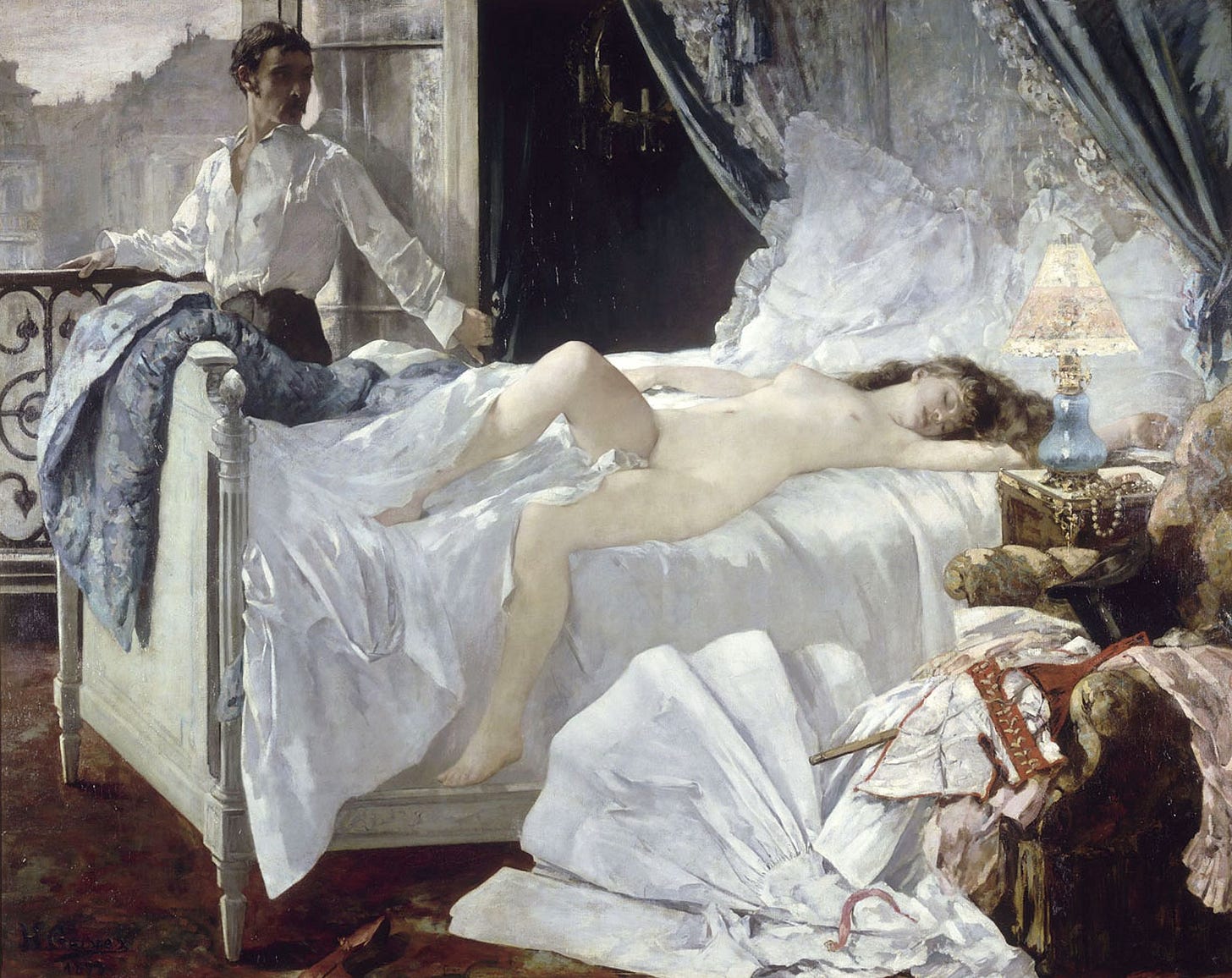Author and Character
Author as God or Magician or Puppeteer
Fantasy: Its Role in “Real Life”
Reservations Recommended, Preface:
Almost against my will, I found myself wondering about [Matthew], and then trying to construct a likely life for him, based on the boy I had known: a dour little fellow, pale and fretful, convinced that most people are contemptible, that most things will turn out badly. It didn’t take long for me to develop a profile for him as he might be in the present: a businessman, vice president of something, recently divorced, graying, obsessed with sex but sexually frustrated, a man with dreads and regrets dogging his heels.
Reservations Recommended, Chapter 2:
From the first, she was only partly dressed when he arrived. He would pour himself coffee while she bustled around, and he would ignore her limber little body, on principle, because he believed, or managed to make himself believe, that not making any sort of advance was cool, that the chummy, sexless domesticity they shared for half an hour showed how sophisticated and modern they were …
He told himself that there was no sense risking a friendship by trying to turn it into something else, …
But what a crush he had on her, and what fantasies he entertained! …
One morning she was still in bed when he arrived. She called out from the bedroom to say that she couldn’t get up. “I don’t think I’m sick,” she said. “I just can’t get out of bed, you know? I do this to myself. I wear myself out. I just can’t do it today.” Matthew made coffee and toast. She sat up in bed when he brought it to her. She wasn’t wearing anything. When she sat up, she pulled the bed sheet over her breasts, but it kept sliding down and she didn’t pay much attention to keeping it up. He tried not to look at her little breasts, because he couldn’t decide how to look at them, what attitude to take toward them. She didn’t seem to care whether he looked or not.

Robert Musil, The Man Without Qualities (translated by Sophie Wilkins):
There must be something we can call a sense of possibility. Whoever has it does not say, for instance: Here this or that has happened, will happen, must happen; but he invents: Here this or that might, could, or ought to happen. If he is told that something is the way it is, he will think: Well, it could probably just as well be otherwise. So the sense of possibility could be defined outright as the ability to conceive of everything there might be just as well, and to attach no more importance to what is than to what is not. The consequences of so creative a disposition can be remarkable, and may, regrettably, often make what people admire seem wrong, and what is taboo permissible, or, also, make both a matter of indifference. Such possibilists are said to inhabit a more delicate medium, a hazy medium of mist, fantasy, daydreams, and the subjunctive mood.
Marcel Proust “Life with Albertine” in The Captive:
. . . indeed the world of possibilities has always been more open to me than that of real events. This helps us to understand the human heart, but we are apt to be taken in by individuals. My jealousy was born of mental images, a form of self torment not based upon probability. Now there may occur in the lives of men and women and of nations (and there was to occur, one day, in my own life) a moment when we need to have within us a superintendent of police, a clearsighted diplomat, a master-detective, who instead of pondering over the concealed possibilities that extend to all the points of the compass, reasons accurately . . .
[to be continued on Tuesday, February 21, 2023]
Have you missed an episode or two or several?
You can begin reading at the beginning or you can catch up by visiting the archive or consulting the index to the Topical Guide.
You can listen to the episodes on the Personal History podcast. Begin at the beginning or scroll through the episodes to find what you’ve missed.
You can listen to “My Mother Takes a Tumble” complete and uninterrupted as an audiobook through YouTube.
You can ensure that you never miss a future issue by getting a free subscription. (You can help support the work by choosing a paid subscription instead.)
At Apple Books you can download free eBooks of Little Follies and Herb ’n’ Lorna.
You’ll find overviews of the entire work in An Introduction to The Personal History, Adventures, Experiences & Observations of Peter Leroy (a pdf document) and at Encyclopedia.com.


